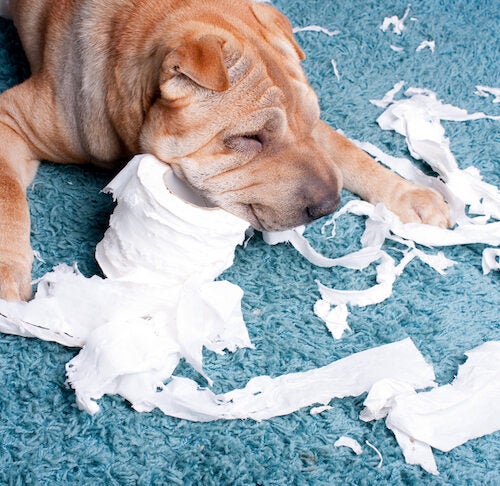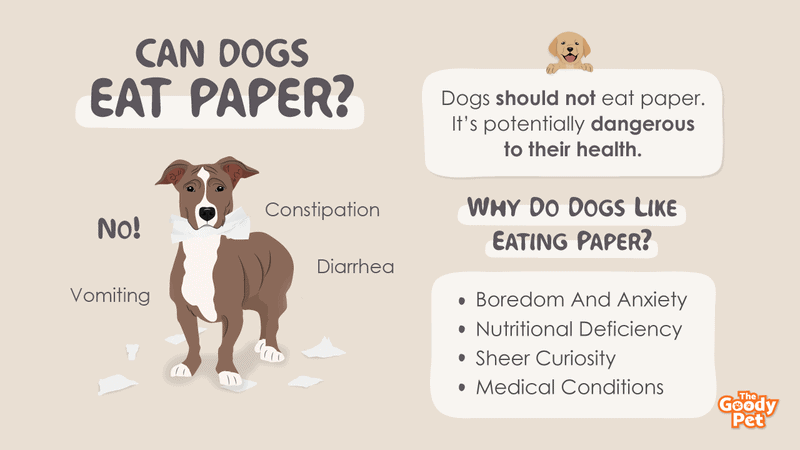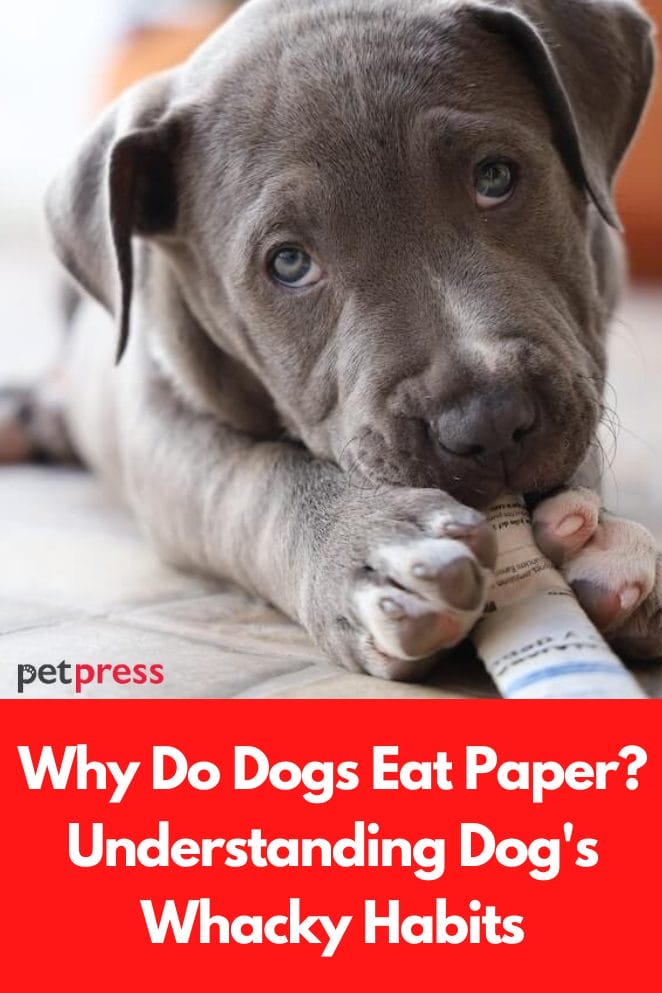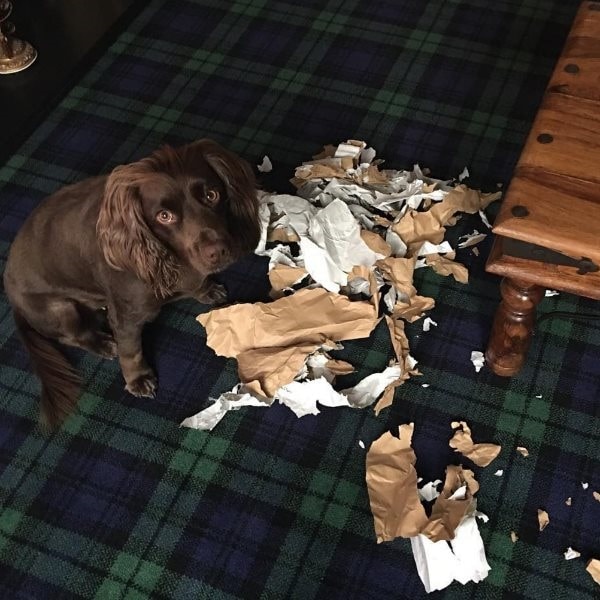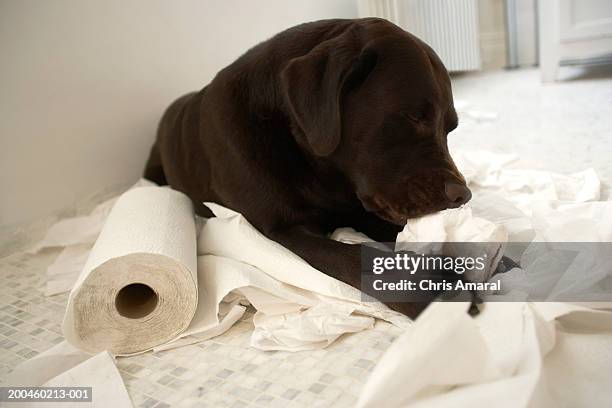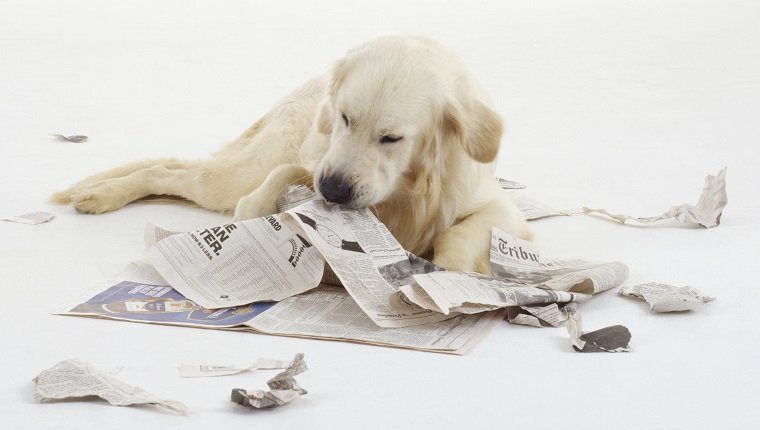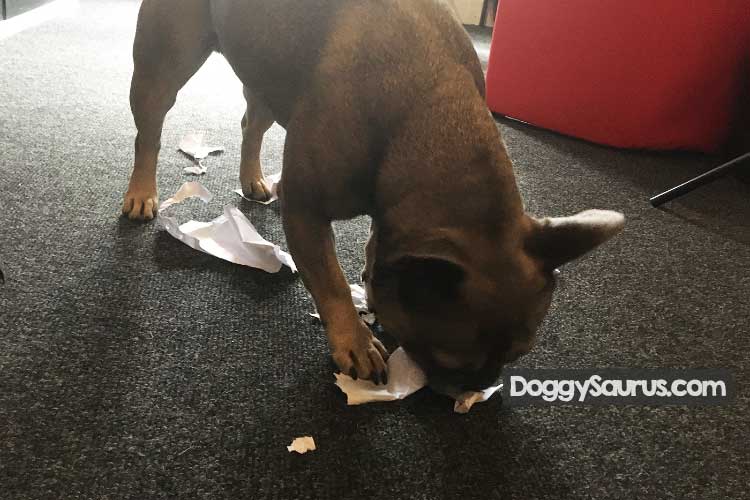What Happens If A Dog Eats Paper

Immediate action is crucial if your dog has ingested paper. Depending on the type and amount of paper consumed, the consequences can range from mild digestive upset to severe intestinal blockage requiring emergency veterinary intervention.
This article outlines the potential dangers of paper consumption in dogs, details the symptoms to watch for, and provides clear guidance on when and how to seek professional help. Understanding the risks and acting swiftly can significantly improve your dog's outcome.
Understanding the Risks
Paper, in general, is not toxic to dogs. The primary danger lies in its indigestibility and potential to cause blockages, especially in smaller breeds or those with pre-existing gastrointestinal issues.
The type of paper ingested also plays a role. Plain paper is generally less problematic than glossy paper, which may contain inks and coatings that can irritate the digestive system.
Types of Paper and Their Potential Effects:
Plain Paper (e.g., notebook paper, printer paper): Typically poses a lower risk but can still cause discomfort if consumed in large quantities.
Glossy Paper (e.g., magazines, brochures): May contain inks and coatings that can lead to digestive upset and, in rare cases, mild toxicity.
Cardboard: While technically paper-based, large pieces can be difficult to digest and increase the risk of blockage. Especially dangerous if coated in wax.
Treated Paper (e.g., receipts, thermal paper): May contain chemicals like BPA, which can be harmful if ingested. Should be avoided at all costs. Small amount of receipts are generally not going to cause serious problems.
Symptoms to Watch For
The symptoms your dog exhibits after eating paper will depend on the amount and type consumed, as well as their individual sensitivity.
Mild cases may only involve temporary discomfort, while severe cases can present with life-threatening complications. If you know or suspect your dog has eaten paper, monitor them closely for the following signs:
Common Symptoms:
Vomiting or retching
Diarrhea or straining to defecate
Loss of appetite or decreased interest in food
Lethargy or weakness
Abdominal pain or distension (swelling)
Constipation
Changes in stool (e.g., blood, mucus)
Severe symptoms like persistent vomiting, inability to defecate, or significant abdominal pain warrant immediate veterinary attention.
When to Seek Veterinary Care
While a small amount of plain paper may pass through your dog's system without issue, it's always best to err on the side of caution.
Consult your veterinarian or an animal poison control center (such as the ASPCA Animal Poison Control Center) immediately if your dog:
Has consumed a large quantity of paper, especially cardboard or glossy paper.
Is exhibiting any of the severe symptoms listed above.
Is a small breed dog or has a history of gastrointestinal problems.
Has ingested treated paper like receipts or thermal paper.
Do not attempt to induce vomiting without veterinary guidance, as this can sometimes cause more harm.
What to Expect at the Vet
Your veterinarian will conduct a physical examination and may recommend diagnostic tests to assess the extent of the problem. These tests could include:
X-rays to check for intestinal blockages.
Blood work to assess organ function and hydration levels.
Ultrasound to visualize the digestive tract.
Treatment options will vary depending on the severity of the case. Mild cases may only require supportive care, such as fluids and a bland diet.
Severe cases, particularly those involving intestinal blockages, may necessitate surgery to remove the obstruction.
Prevention is Key
The best way to protect your dog from the dangers of paper consumption is to prevent access. Keep paper products out of reach, especially if your dog is prone to chewing or scavenging.
Secure trash cans and recycling bins, and avoid leaving paper items unattended on counters or tables. Train your dog to "leave it" and "drop it" on command.
Consider providing your dog with appropriate chew toys to satisfy their natural chewing instincts.
Ongoing Developments
Researchers at the Veterinary Emergency and Critical Care Society (VECCS) are continuously studying the effects of foreign body ingestion in dogs to improve treatment protocols and outcomes.
Stay informed about the latest recommendations by consulting your veterinarian and reliable sources of veterinary information. Early intervention remains the cornerstone of successful management in cases of paper ingestion.
